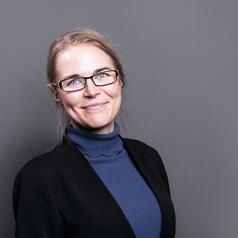
Natalia I. Kucirkova
Professor Reading and Early Childhood Development, The Open University
Natalia I. Kucirkova is Professor of Early Childhood Education at The Open University, UK and at the University of Stavanger, Norway. Natalia’s research concerns innovative ways of supporting children’s book reading, digital literacy, and exploring the role of personalisation in the early years. Natalia’s research takes place collaboratively across academia, commercial and third sectors. Her latest book is "Inspirational Women in Academia Supporting Careers and Improving Minority Representation" by Routledge.
Photo: Anne Lise Norheim AYF
Less ![]()
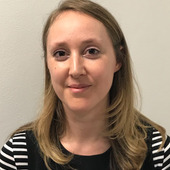
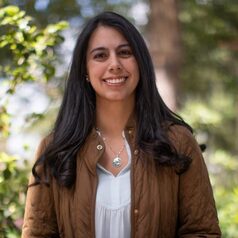
Natalia Lozada Mendieta
Assistant Professor, Department of Art History, Universidad de los Andes
Natalia's areas of interest include the study of pre-Hispanic rock art and ceramics from the Caribbean and Orinoco regions, with an emphasis on archaeometric studies and indigenous technologies. She has also studied the representation of indigenous people in the New Granada region during the early colonial period, using ethnohistorical sources and colonial-era paintings.
Less ![]()
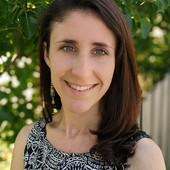
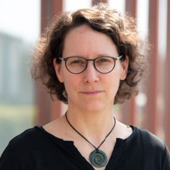
Natalie Barker-Ruchti
Associate Professor of Sport Management and Coaching, Örebro University
Less ![]()

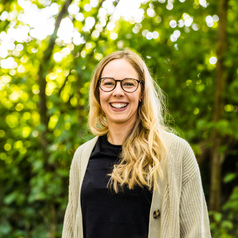
Natalie Brown1
Research officer for the Welsh Institute of Performance Science, Swansea University
Dr Natalie Brown is a research officer for the Welsh Institute of Performance Science, based in the department of Sport and Exercise Sciences at Swansea University.
Natalie has a background working as a physiologist in elite sport, optimising athlete performance. As part of this work she recognised the impact of female specific factors. As a result, Natalie has specialised in research relating to female athletes, focussed on the menstrual cycle and impact on elite performance to participation in physical activity. Her research works closely with Sport Wales and National Governing Bodies across Wales, along with schools to improve menstrual education provision.
Natalie has a particular focus on using her research to create change and translating knowledge into practice.
Less ![]()
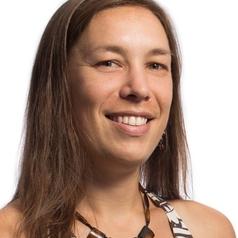
Natalie Bursztyn
Lecturer in Geosciences, University of Montana
I have a passion for finding creative ways to teach and communicate the importance of geology – its application in everyday life, for inspiring students to explore their environment, and for encouraging their natural awe and respect for the Earth. I have a broad range of geologic interests ranging from broad-scale landscape evolution and sustainability to public science communication and wine and terroir. I am passionate about employing creative ways to communicate the importance and value of scientific understanding in everyday life and how critical it is that we as a species embrace sustainable practices now.
My recent research has focused on geoscience education, especially assessing the efficacy of pedagogic tools ranging from analog models of Earth systems to the integration of smart technology and augmented reality in learning experiences. My experience in post-secondary education has been driven by my passion for engaging and educating my diverse student body equally.
Less ![]()
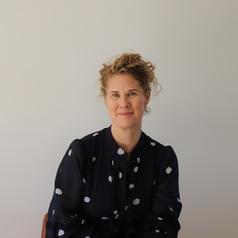
Natalie Day
Postdoctoral research fellow, Early Start, University of Wollongong
Natalie Day is a Research Fellow with Early Start at the University of Wollongong, Australia, where she is published in topics of early self-regulation development and play. Natalie’s work has contributed to research on the development of playful pedagogies at Cambridge University’s PEDAL Centre (Play in Education, Development, & Learning) and she continues to work on a variety of projects in the field of education, including digital play contexts, intergenerational play, and parent-child play interactions. Natalie is a PEDAL affiliate, and a member of the NSW Institute of Educational Research and Centre of Excellence for the Digital Child.
Less ![]()

Natalie Duffus
PhD Candidate, Conservation Policy, University of Oxford
I am a PhD candidate in the Department of Biology at the University of Oxford. I am an ecologist with a background in researching how we can optimise environmental policy for the best outcomes for insect biodiversity.
My research looks at the conservation outcomes of ecological compensation policies (e.g., Biodiversity Net Gain) with a particular focus on the proxy biodiversity metrics used in these policies and how they reflect other dimensions of biodiversity. Currently, I am using DNA metabarcoding to measure invertebrate community diversity to analyse against baseline Biodiversity Net Gain scores in England.
Less ![]()
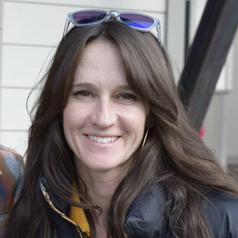
Natalie Florence
PhD Candidate in Humanitarian Design and Infrastructure Studies, Arizona State University
For my doctorate, I am researching the architecture of homeless shelter design in Phoenix, Arizona. I am also a researcher in public participation of oil and gas pipeline in the United States. Prior to graduate school, I worked for 7 years in the public and private sector, practicing architecture.
Less ![]()
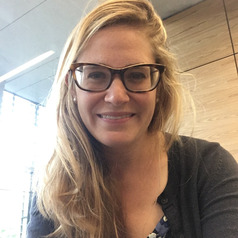
Natalie Goodison
Teaching Fellow in Department of English Studies, Durham University
I am a scholar of medieval romance and the history of ideas with a particular interest in embodiment. I've written on the medical humanities regarding women's health, on the transformation of the body, and on medieval swans. Ive had some small success working collaboratively with scientists, resulting in my being interviewed on Times Radio by John Pienaar, and featured in The Guardian, The Times, Science Magazine, and beyond. My current research looks at medieval ideas of causality for abnormal birth. I hold degrees from UNC (BA), Edinbugh (MSc), and Durham (PhD).
Less ![]()
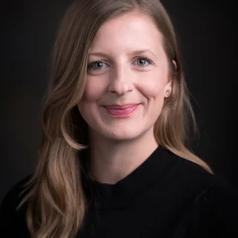
Natalie Goulter
Lecturer, College of Education, Psychology and Social Work, Flinders University
Dr. Natalie Goulter is a Lecturer at Flinders University, an Adjunct Associate Lecturer within the Salivary Bioscience Research Centre at the University of New South Wales, and an Adjunct Professor within the Department of Psychology at Simon Fraser University, Canada. Natalie is a consortium member of the Hierarchical Taxonomy of Psychopathology, and a member of the Association for Psychological Science and the Society for the Scientific Study of Psychopathy. She is also an editorial board member for the Journal of Psychopathology and Clinical Science, Research on Child and Adolescent Psychopathology, and the International Journal of Behavioral Development. Natalie’s research program aims to advance the understanding, prediction, and prevention of externalising psychopathology in young people.
Less ![]()
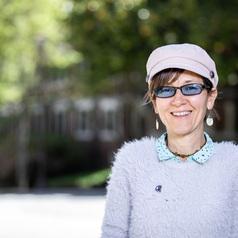
Natalie Khazaal
Associate Professor of Arabic and Arab Culture, Georgia Institute of Technology
I research the connections among media, language, and disenfranchisement. I have published about Arab media (e.g., Lebanese TV), atheism (e.g., why Arab atheists use pseudonyms; how gender is implicated in the atheist message), and refugees (e.g., how systems of oppression against human groups cannot be dismantled without dismantling oppression agains t other species as well).
Less ![]()
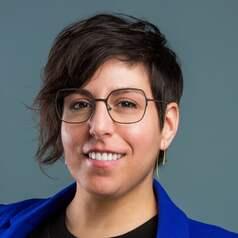
Natalie Kouri-Towe
Associate Professor, Simone de Beauvoir Institute, Concordia University
Natalie Kouri-Towe is an Associate Professor of feminism and sexuality at the Simone de Beauvoir Institute at Concordia University. Her research has been published in both academic and non-academic venues on topics related to affect theory, solidarity, kinship, queer activism, trigger warnings, gender and sexuality pedagogies, masculinity, and responses to war in the Middle East. Her edited collection, Reading the Room: Lessons on Pedagogy and Curriculum from the Gender and Sexuality Studies Classroom, is forthcoming (Fall 2024) with Concordia University Press. Along with Myloe Martel-Perry, she has also published an open access teaching guidebook, Better Practice in the Classroom: A Teaching Guidebook for Sustainable, Inclusive, and Equitable Learning from a Gender and Sexuality Studies Framework, available through Concordia Pressbooks. She is currently working on a book manuscript on feminist and queer solidarity under neoliberalism titled Solidarity at Risk.
Less ![]()
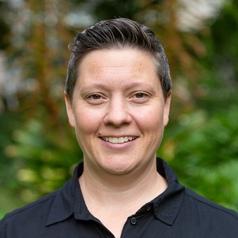
Natalie Krikowa
Senior Lecturer in Communication, University of Technology Sydney
Dr. Natalie Krikowa (she/they) is a media scholar and practice-led researcher at the University of Technology Sydney. Natalie holds a Doctor of Creative Arts in media and cultural studies and currently teaches in digital media and screenwriting. Natalie's research focuses on issues surrounding LGBTIQA+ representation in screen studies, popular culture, and transmedia; and the use of digital and social media in disaster risk communication, particularly in improving communication and community engagement using new technologies. Natalie’s queer-focused creative practice works include The Newtown Girls (2012), All Our Lesbians Are Dead! (2017), and Queer Representation Matters (2023), underscoring her commitment to amplifying LGBTQIA+ voices and narratives through storytelling.
Less ![]()
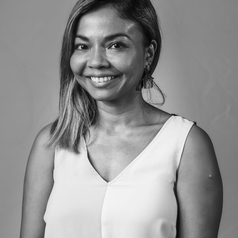
Natalie Lazaroo
Lecturer, School of Education and Professional Studies, Griffith University
Dr Natalie Lazaroo is a Lecturer in Education (Drama) at Griffith University, where her research interests lie in cultural citizenship, socially engaged performance, arts-based research, and decentring/decolonising methodologies. Natalie has received grants for her work into the arts and cultural citizenship with disadvantaged young people in Singapore, where she has been involved in a long-term and ongoing collaboration. Along with Dr Tanja Beer and Dr Linda Hassall, Natalie is a co-director of the Performance + Ecology Research Lab (P+ERL), which explores the intersections between creative practice and ecological ways of being, knowing, and doing.
Less ![]()

Natalie Silove
Associate professor, University of Sydney
Associate Professor Natalie Silove is a Neurodevelopmental Paediatrician, Head of the Child Development Unit at The Children's Hospital Westmead and Senior Lecturer Sydney University
Less ![]()
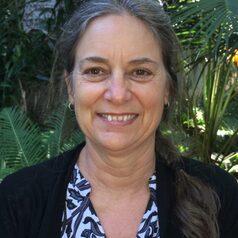
Natalie Stoeckl
Professor of Economics, University of Tasmania
Bachelor of Economics (Australian National University)
Masters of Economics (James Cook University)
PhD (Australian National University)
Less ![]()

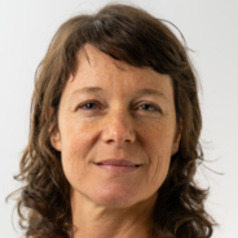
Natalie C. Ebner
Professor of Psychology, University of Florida
Dr. Natalie Ebner is Full Professor and the Trish Calvert Endowed Professor in the Department of Psychology in the College of Liberal Arts and Sciences at University of Florida. She is affiliated with the Center for Cognitive Aging and Memory, the Institute on Aging, the Department of Physiology and Aging, the McKnight Brain Institute, the Pain Research and Intervention Center of Excellence, the Substance Abuse Training Center in Public Health, the Florida Institute for National Security, and the Florida Institute for Cyber Security Research. She received her Ph.D. in 2005 in Psychology with a particular focus on lifespan development and aging from the Free University of Berlin, Germany. She completed post-doctoral fellowships at the Max Planck Institute for Human Development in Berlin and at Yale University, where she also worked as Associate Research Scientist before joining the faculty at the University of Florida. Dr. Ebner’s expertise in experimental behavioral aging research coupled with her background in affective, social, and cognitive neuroscience allow for a comprehensive view of brain−behavior relationships in the study of aging. Methods applied in her lab include structural and functional MRI and eye-tracking as well as pharmacological (i.e., intranasal oxytocin administration), brain-stimulation (real-time fMRI neurofeedback), and real-life (i.e., simulated phishing) interventions, in both healthy and pathological aging (e.g., Alzheimer’s Disease and related dementias). She has received multiple awards throughout her career, such as the International Max Planck Research School on the Life Course Outstanding Alumni Award, the University of Florida College of Liberal Arts and Sciences International Educator of the Year Award, the University of Florida Research Foundation Professorship Award, and the University of Florida College of Liberal Arts and Sciences Faculty Achievement Award. Since 2015, she has been a Kavli Fellow of the National Academy of Sciences and since 2023 a Fellow of the Association for Psychological Science. Her body of work is documented in over 100 publications. Over the years, her research has been funded by NIH, NSF, and other agencies and she has gained extensive expertise in supervision of early-career faculty, including NIH K01 awards and diversity supplements.
Less ![]()
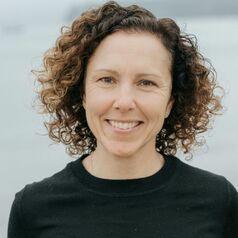
Natalie M Frandsen
Assistant Teaching Professor, School of Public Health and Social Policy, University of Victoria
My career brings together practice experience in public health, mental health and post-secondary teaching. I have a BSc in Health Studies, Bachelor and Master degrees in Nursing and a PhD in Educational Technology and Learning Design. My area of research focuses on accessible and inclusive education for students with mental-health-related disabilities who are studying online. I have recently (November 2022) defended my PhD and I hold a Social Sciences and Humanities Research Council (SSHRC), Joseph-Armand Bombardier fellowship (2020-2023).
Less ![]()

Natalie Sum Yue Chung
PhD Candidate, Center for Policy Research on Energy and the Environment, Princeton University
Natalie Sum Yue Chung is a Ph.D. candidate in Science, Technology, and Environmental Policy at the Princeton School of Public and International Affairs, jointly supervised by Michael Oppenheimer and Eric Tate. Inspired by a polar explorer at the age of 11, Natalie has dedicated her life to climate action. She is the co-founder of V'air Sustainability Education, a social enterprise that provides nature-based climate change education for schools and corporations, reaching over 2 million population. Natalie is recognized by Eco-Business and The Japan Times as one of the most impactful sustainability leaders in Asia Pacific.
Natalie's professional experience with the World Bank on a Pacific Island environmental project led her to realize the life-and-death consequences of extreme weather for vulnerable communities, sparking her research interest in climate resilience (Link: TEDx Talk on Building Cities’ Climate Resilience. Natalie aims to develop an evaluation model that integrates scientific and human elements to support nature-based adaptation. Her ultimate goal is to bridge the gap between academia and policy by advocating for increased investments in Nature-based Solutions (NbS) and promoting community engagement to achieve transformative adaptation.
In recognition of her climate research and advocacy efforts, Natalie has been appointed by the Hong Kong government as a member of the Council for Carbon Neutrality and Sustainable Development, the Green Tech Fund Assessment Committee, and the Country and Marine Parks Board to advise on policy decisions. As a World Economic Forum Global Shaper, Natalie initiated the Lead for Sustainability Mentorship program. She also served as the sole Hong Kong representative at the Dr Sylvia Earle Antarctic Climate Expedition, advocating for tackling the ocean-climate crisis.
Natalie holds an MPhil in Environmental Change and Management from Oxford University and a BSSc in Geography and Resource Management from The Chinese University of Hong Kong. In her spare time, she enjoys playing the clarinet, Chinese painting, and hiking.
Less ![]()
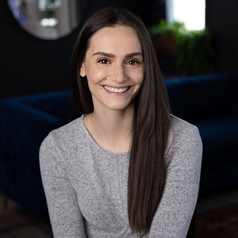
Natalie V. Scime
Medical Student & Epidemiologist, Cumming School of Medicine, University of Calgary
Natalie Scime is an epidemiologist specializing in reproductive and women’s health. Her program of research investigates the relationships between reproductive factors and women’s health and chronic disease risk across the life course. Dr. Scime holds a PhD in Epidemiology from the University of Calgary, completed a Banting Postdoctoral Fellow jointly at the University of Toronto Scarborough and ICES (Ontario), and is presently completing her Doctor of Medicine (MD) studies with the Class of 2027 at the University of Calgary.
Less ![]()
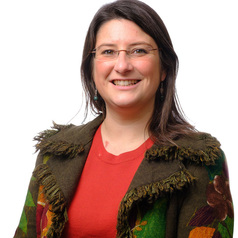
Natalie Victoria Wilmot
Associate Professor in International Business, University of Bradford
Natalie's research focuses on language diversity in international business, and she has published a number of works on this topic, with a research monograph on language management published by Multilingual Matters in August 2022. She plays an active role in the administration of Groupe d’Etudes Management et Langage, a scholarly body focused on management and language.
Her teaching interests are in the areas of international strategy and cross-cultural management. In addition to her substantive roles at Sheffield Hallam University and subsequently the University of Bradford, since 2017 she has also been a visiting lecturer at the University of Bordeaux, where she teaches a postgraduate course on intercultural communication. Prior to academia, Natalie held various positions in the private sector, specialising in export sales and has worked extensively with organisations in southern Europe and Latin America.
Less ![]()

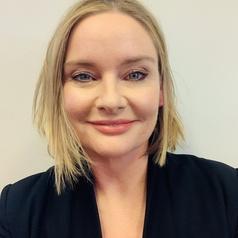
Natasha Beaumont
Lecturer in Creative Arts, School of Education and Social Work, University of Sydney
Dr Natasha Beaumont is a lecturer in Creative Arts K to 6 and secondary pedagogy at The University of Sydney. She is also a contributing researcher at the university's CREATE Centre. Natasha's research interests are creativity, arts education, literacy and EAL/D learners. She teaches drama and filmmaking in primary and secondary programmes across NSW and draws heavily from her background as a professional actor to inform her teaching and research.
Less ![]()
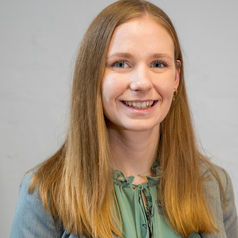
Natasha Bradshaw
Grattan Institute
Natasha Bradshaw is an Associate in Grattan Institute’s Transport and Cities Program. She previously worked at the Australian Treasury, with a focus on structural issues in the labour market and barriers to women’s economic security.
Less ![]()

Natasha Erlank
Professor of History, University of Johannesburg
BA (Hons) MA University of Cape Town. PhD Cambridge University.
I trained as an historian, doing my undergraduate, honours and master sdegrees at the University of Cape Town (UCT). My doctorate was completed at Cambridge University.
To date, my research interests have focused on the history of the relationship between gender and mainline African Christianity, within the broader context of colonialism. This work has just been published as Convening Black Intimacy: Christianity, Gender, and Tradition in Early-Twentieth Century South Africa (Johannesburg: Wits University Press, 2022).
My new work is on the history of reproductive health in Africa between the 1940s and the 1990s. This work takes a comparative look at how birth control policies were rolled out across a range of different and newly-independent nation states, and about the ways in which Africans resisted and adopted the agendas of foreign donor agencies in this regard.
After brief teaching stints at UCT and Rhodes University, I have been lecturing and researching at the University of Johannesburg since 1999. From 2007 to 2010 I directed the Centre for Culture and Languages in Africa. In 2011 I moved to head up Historical Studies at UJ, a position I held for five years. I am currently a professor in the department, where I have a particular interest and expertise in supervising and mentoring postgraduates. I am also a senior research associate at Carleton University, Ottawa, Canada.
Less ![]()

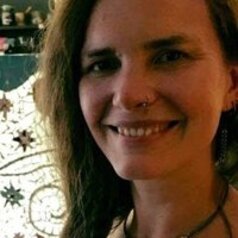
Natasha Harlow
Honorary Research Fellow, Department of Classics and Archaeology, University of Nottingham
I have recently finished my doctoral research at the University of Nottingham, funded by the AHRC and the Midlands3Cities Doctoral Training Partnership. I previously attained a BA (Hons) in Archaeology, Anthropology and Art History and an MA in Cultural Heritage at the University of East Anglia. I am currently employed as a Research Fellow on the AHRC/EPSRC funded Caistor Immersive Experience project, developing an Augmented Reality app for the Roman town. I have recently completed the Associate Teacher Programme to become an Associate Fellow of the Higher Education Academy and work as a Teaching Affiliate at the University of Nottingham. I am also a Reviews co-editor for the Britannia archaeology journal. My professional career, including a strong museums background and work with Portable Antiquities Scheme (PAS) data, has given me an understanding of the theoretical and practical issues surrounding the collection and interpretation of small finds. Working with local archaeological groups has provided me with an excellent knowledge of regional material culture. I have also volunteered with the PASt Explorers and Nottingham Young Archaeologists' Club, as well as running schools' outreach in Norfolk and Nottinghamshire. I have taken an active role in fieldwalking, excavation and finds processing at the civitas capital of Venta Icenorum (Caistor St Edmund) with the Caistor Roman Project (CRP) over the past twelve years. Since 2010, I have been investigating the 1929-35 excavations of Donald Atkinson at Caistor, in partnership with Norfolk Museums Service (NMS) and CRP. Oral history interviews are another project which I have been carrying out over the past several years with key figures in the archaeology of Norfolk. I have extended this to explore the personal stories, opinions and behaviour of metal-detectorists, who play an important role in recovering many of the objects in my study.
Less ![]()
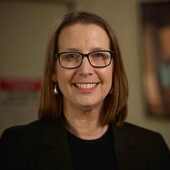
Natasha Heap
Program Director for the Bachelor of Aviation, University of Southern Queensland
Less ![]()

Natasha Karner
PhD Candidate, International Studies, RMIT University
Natasha Karner is a PhD Candidate at RMIT University in Melbourne, Australia. Her research interests are in emerging technologies and global security. She is a current Fellow of the Cambridge Existential Risks Initiative (CERI).
Less ![]()

Natasha Kennedy
Senior research officer and data scientist, Swansea University
I am a Senior Research Officer for the National Centre for Population Health and Wellbeing Research. My research interests lie in utilising statistics to analyse and model life course data such as social service, education, and health data.
Less ![]()
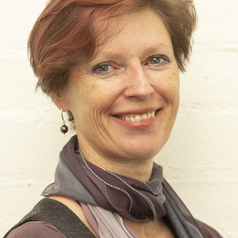
Natasha Layton
Senior Research Fellow: Rehabilitation, Ageing and Independent Living Research Centre, Monash University
An occupational therapist and an academic practicing, researching and teaching in the areas of assistive technology (AT), disability, and outcomes. Dr Layton works locally and nationally in Australia with a range of consumer groups, government and the non-profit sector. She consults globally to the World Health Organisation (WHO) Global Co-Operation on AT Initiative and is a contributor to the WHO/ UNICEF Global Report on Assistive Technology, released in 2022. Dr Layton represents Australian Standards as the Australian expert to ISO assistive products classification and terminology standard. She is a past Board Member of Occupational Therapy Australia, current International Lead on the Board of Australia’s peak body for AT, ARATA (www.arata.org.au), and a founding Board member of the Global Alliance of AT Organisations (www.gaato.org). Dr Layton is particularly interested in the relationship between research, policy and practice, and inclusive research methods.
Less ![]()
- Market Data























